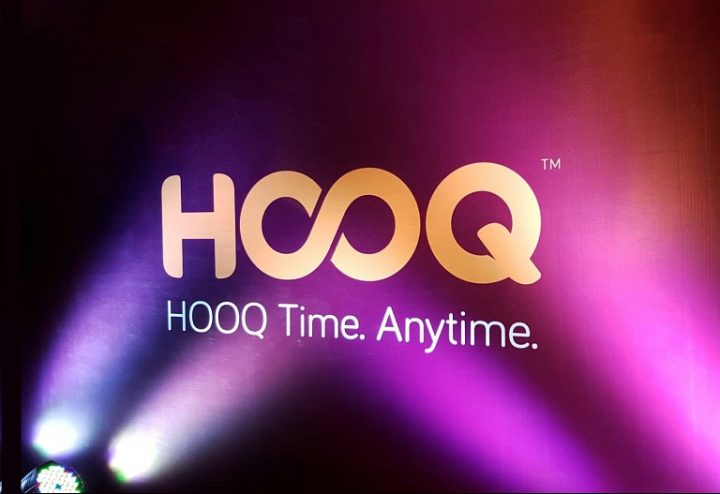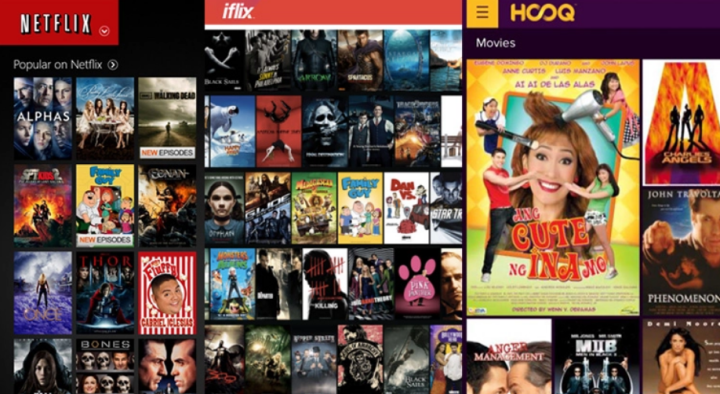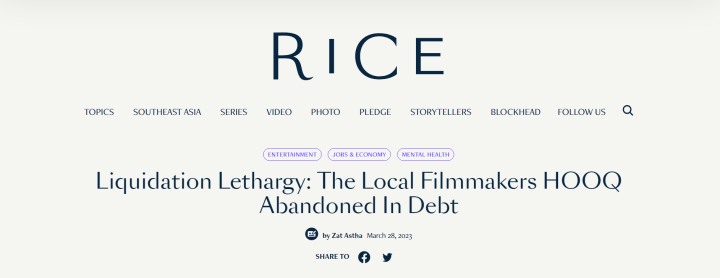Remember HOOQ?
Launched way back in 2015, before Netflix even launched in the Philippines, HOOQ was one of the early pioneers of video streaming services here in the country.
But after its liquidation and subsequent closure in April 2020 due to inadequate growth and inability to cover escalating costs, HOOQ faded into oblivion as Netflix became the clear video-streaming king.
However, just a few days ago, a new story about HOOQ came to light — one that involved thousands of dollars worth of unpaid creative work and production companies looking for answers.
According to TechInAsia editor Terence Lee, HOOQ owes approximately $300,000PHP 17,605,650INR 25,424,940EUR 285,690CNY 2,183,490 to indie production houses who have created content for the platform before the streaming service shut down.
In the TechInAsia article that Lee attached to his post, it was reported that there are currently four production firms in Singapore and “several others in Asia” that are currently still waiting to be paid for their work, with most of them receiving vague updates about the company’s liquidation and unclear answers on when they would in fact be paid.
3 full years after HOOQ’s closure, the question begs to be asked: How did we get here?
Table of Contents

Positioning itself as Asia’s go-to video streaming platform, HOOQ was borne out of a partnership between Singapore’s Singtel, the largest mobile network company in Singapore, Warner Brothers Entertainment, and Sony Pictures Television.
It carried a lot of promise as it offered not only Hollywood blockbusters and TV series but also featured local movies and programs that customers could watch on their devices.
At launch, HOOQ had a catalog of over 10,000 movies and TV series and presented a monthly subscription fee of Php 199USD 3INR 287EUR 3CNY 25 via a mobile telco Globe partnership through their GoSurf and Tattoo Postpaid plans at the time (HOOQ was also made available for non-Globe users with a different fee).

At the time, there was not one video streaming platform that reigned supreme. Even as TV viewership declined, internet video streaming wasn’t the big market that it is now.
We even tried to answer the question of whether internet TV would save declining TV viewership, where we listed HOOQ and other up-and-coming streaming services and reflected on their chances of surviving against traditional TV programming.
But it was clear, HOOQ had potential. So much so that big tech giants like Globe and Grab chose to partner with HOOQ in featuring its video-streaming services within their products, in one way or another.
Not to mention the fact that all the big Pinoy entertainment players such as ABS-CBN Broadcasting Corporation, GMA Network, Viva Entertainment, and Regal Films partnered with HOOQ to provide local content to its customers, aside from the big blockbuster franchises it already had.
So what happened?

When Netflix officially launched in the Philippines back in 2016, one could foresee that streaming services like HOOQ and iFlix had their work cut out for them.
Aside from offering just about the same amount of content (find our Netflix, iFlix, and HOOQ comparison here), Netflix had the advantage of being arguably the biggest video streaming platform in the United States.
But remember, this was in 2016. Netflix wasn’t as big then as it is now worldwide. At the time, we even asked if there was room for Netflix given that HOOQ and iFlix had the jump into the Philippine market a full year before they launched.

So what happened?
Well, it turns out that it was Netflix’s popularity and HOOQ’s lack of exclusive and original programming, that shut HOOQ down for good.
When Netflix came along, it not only presented users with its impressive reputation as the top streaming app in the US, but it also brought to consumers a ton of original content that HOOQ and iFlix just lacked.
There were titles such as Stranger Things, BoJack Horseman, Orange is the New Black, Black Mirror — the list goes on. In the end, HOOQ just didn’t have the novelty of new titles and programs that would keep users subscribed for longer.
Even as HOOQ tried to finance more original programming later on, it seemed to be too late.
In April 2020, HOOQ filed for liquidation and closure, where it was highlighted that “HOOQ was not able to grow sufficiently to provide sustainable returns nor cover escalating costs”
Back to the present, we go back to the news of the HOOQ filmmakers in 2023, still unable to receive payment for all the work they did for the video-streaming service.
An in-depth article from RICE Media covering these unpaid creators reported that HOOQ’s liquidation end date had been delayed a staggering five times. This means that the unpaid creators still have a ways to go before they ever get the payment owed to them.

While we don’t have more on-hand information about the current developments with HOOQ’s liquidation and the unpaid production companies and creators, we felt compelled to share a few thoughts on the matter given that HOOQ had such a promising future in the Philippines when it first launched back in 2015.
First and foremost, we back TechInAsia and RICE Media’s coverage of the issue and firmly support the creators who have yet to receive their payment from HOOQ.
It is HOOQ’s responsibility to properly liquidate the money owed and we hope that they do so and do so promptly.
Secondly, the incident highlights how important novelty and original content is in this day and age of online video streaming. We wonder how HOOQ would have fared overall if it had just as much focus on exclusive programming as Netflix did back in 2016.
While we know doing so is easier said than done, especially with how expensive producing original content actually is, it’s undeniable that offering exclusive and original programming was a key factor in Netflix’s success and has become the prime business model for video streaming services today (as adopted by Disney+, Amazon Prime, HBO Go, and more.)
Lastly, HOOQ’s demise, and the subsequent liquidation issues we’ve just talked about, emphasize just how fragile the tech industry as a whole really is.
Even as tech companies make enormous amounts of money, the number of recently reported layoffs in the tech space from Google, Facebook, Microsoft, and even Netflix itself shows how vulnerable the tech world is to market forces as well, no matter how mighty or invincible they may seem on the outside.

YugaTech.com is the largest and longest-running technology site in the Philippines. Originally established in October 2002, the site was transformed into a full-fledged technology platform in 2005.
How to transfer, withdraw money from PayPal to GCash
Prices of Starlink satellite in the Philippines
Install Google GBox to Huawei smartphones
Pag-IBIG MP2 online application
How to check PhilHealth contributions online
How to find your SIM card serial number
Globe, PLDT, Converge, Sky: Unli fiber internet plans compared
10 biggest games in the Google Play Store
LTO periodic medical exam for 10-year licenses
Netflix codes to unlock hidden TV shows, movies
Apple, Asus, Cherry Mobile, Huawei, LG, Nokia, Oppo, Samsung, Sony, Vivo, Xiaomi, Lenovo, Infinix Mobile, Pocophone, Honor, iPhone, OnePlus, Tecno, Realme, HTC, Gionee, Kata, IQ00, Redmi, Razer, CloudFone, Motorola, Panasonic, TCL, Wiko
Best Android smartphones between PHP 20,000 - 25,000
Smartphones under PHP 10,000 in the Philippines
Smartphones under PHP 12K Philippines
Best smartphones for kids under PHP 7,000
Smartphones under PHP 15,000 in the Philippines
Best Android smartphones between PHP 15,000 - 20,000
Smartphones under PHP 20,000 in the Philippines
Most affordable 5G phones in the Philippines under PHP 20K
5G smartphones in the Philippines under PHP 16K
Smartphone pricelist Philippines 2024
Smartphone pricelist Philippines 2023
Smartphone pricelist Philippines 2022
Smartphone pricelist Philippines 2021
Smartphone pricelist Philippines 2020